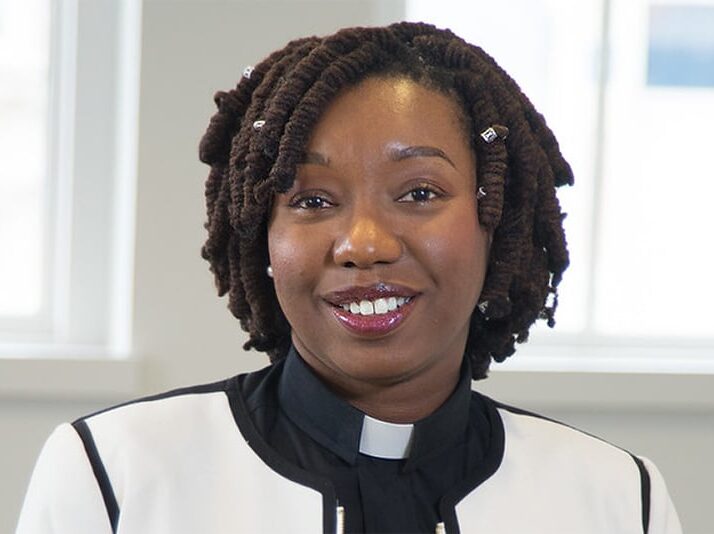Before Building the City, Repair the Breach
Isaish 58:9b-10, 12 (NRSV)
“If you remove the yoke from among you,
the pointing of the finger, the speaking of evil,
10 if you offer your food to the hungry
and satisfy the needs of the afflicted,
then your light shall rise in the darkness
and your gloom be like the noonday.
12 Your ancient ruins shall be rebuilt;
you shall raise up the foundations of many generations;
you shall be called the repairer of the breach,
the restorer of streets to live in.”
“Repairer of the breach” is a powerful aspiration. Only when the breach is repaired in a city’s wall can all the people sleep easy. But so often in this world, we try to build the “city on a hill” without putting in the work first to repair the breach that festers at its core. We talk about love and reconciliation, but we don’t talk about how to justly repent for the wrong we’re trying to reconcile.
Europeans, including those who settled North Americans, tore mothers and children; fathers and elders, from their homeland, uprooting the families and spirits of millions of Africans to turn them into chattel slaves. They gorged on the wealth they extracted from the suffering of their siblings, and invested it in their own nations, families, and futures. We live in the recent aftermath of that terrible calculus. We live in a city with walls of kinship that have been terribly breached by centuries of greed and abuse. The breach didn’t end in 1863 with the Emancipation Proclamation and it didn’t end in 1965 with the Voting Rights Act. Those changes were necessary steps toward equality and hope for the future generations of Americans, but they did not address the sins committed against the once enslaved, nor offer a true accounting for the wealth stolen.
It is foolish and immoral to expect reconciliation without repentance and reparation. To move forward as a people, we need to do more than promote equity for our children, we need to repair the breach created by our ancestors and perpetuated by our own economic ways of being. But how?
As Christians, we have a rich history of repentance on which to draw. In the Isaiah passage above, God speaks directly to God’s people, offering a way forward: “remove the yoke from among you… offer your food to the hungry and satisfy the needs of the afflicted.” The language these days for this work is “reparation” — actions taken to “make amends, offering expiation (atonement), or giving satisfaction for a wrong or injury” (Merriam-Webster). In practice, reparations can take the form of cash payments to affected peoples, as was given to Japanese Americans who were forced into internment camps during WWII, or can include significant, sustained investment in the health and economic development of harmed communities.
The need for reparations must be understood not only as an issue inside the United States, but also within the global context. Africans were enslaved throughout the North and South American colonies, and Europeans in the United States remained in North America to build the infrastructure of a post-slavery economy. Caribbean and South American nations were underdeveloped and then abandoned by the Europeans and Americans who extracted wealth from the land and then left the people they enslaved to fend for themselves. The deadly cocktail of white supremacy, colonialism, and even predatory capitalism has left many people of color in our global community in abject poverty without any hopes of economic mobility. This injustice has bred massive wealth gaps, health disparities, ecological devastation, and national debt crises in many of these young nations that are directly traceable to massive European and American disinvestment in their once European and settler-colonies. The struggles of these peoples are not “someone else’s problem.” They are our people, our problems.
As Christians in this time and place, we can and must take a stand to repair the breach created by chattel slavery and the evils of racism, systemic oppression, and colonialism that were sown from that original sin in this hemisphere and globally. To help, you can join our efforts for the Zacchaeus Tax Project that uses tax justice to address the social and ecological debts owned communities and promote it on social media with #ZacTax. You can also help by advocating for HR-40, the Congressional bill that would establish a Commission to study reparations proposals for African Americans. You can also learn about and support the 10 Point Action Preliminary Reparations Program of the National African American Reparations Commission (NAARC) and 10 Point Action Plan of the Caribbean Reparations Commission (CARICOM) in their fight for reparations. Finally, we encourage you to bring this conversation to your congregation by participating in the UCC’s UN International Decade for People of African Descent.

The breach exists. The God of our ancestors demands that their people respond with repentance and repair. Only then can the equity we dream of begin to unfold or our wounded world begin to move toward the Kindom of God.
Rev. Sèkinah Hamlin
Minister for Economic Justice, United Church of Christ
Related News
A Moment of Silence
The weekend news was alarming. Two students shot and killed with 9 injured at Brown University...
Read MoreIn hope-filled worship service, UCC and United Church of Canada celebrate full communion past and future
On Saturday, Dec. 13, many from the United Church of Christ (UCC) and the United Church of...
Read More‘A Gift of God to the World:’ Christmas greetings from the General Minister and President
As Christmas quickly approaches, UCC General Minister and President/CEO the Rev. Karen Georgia...
Read More


